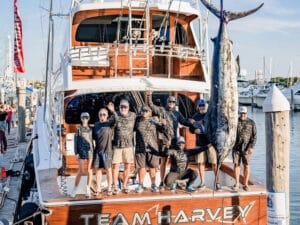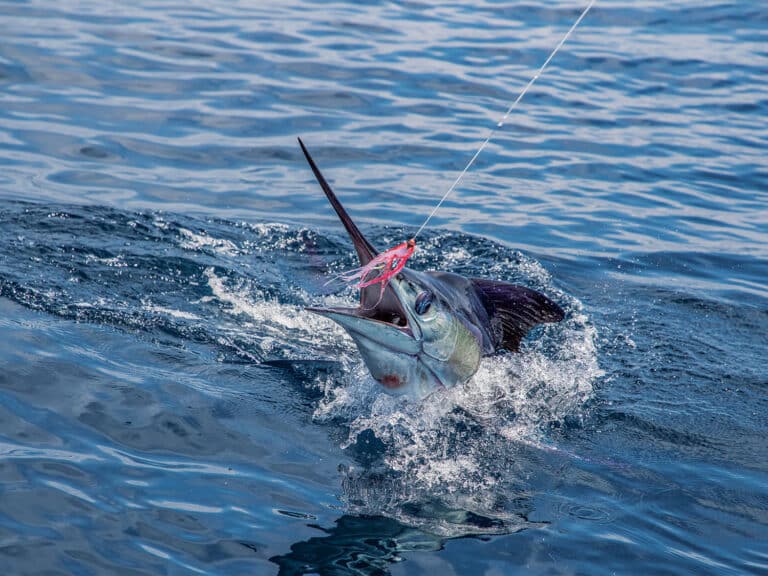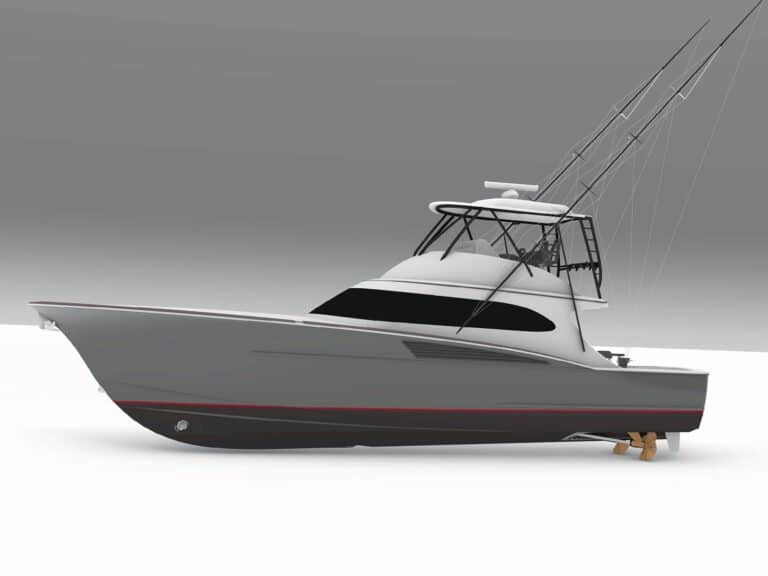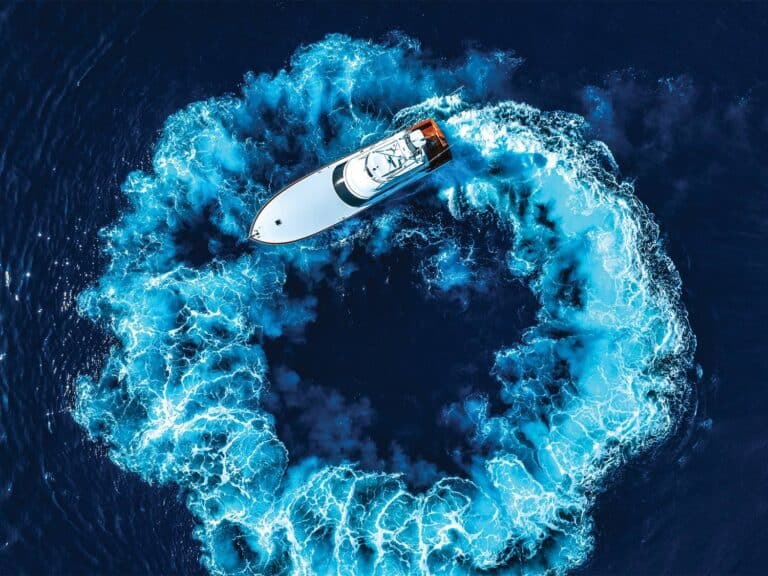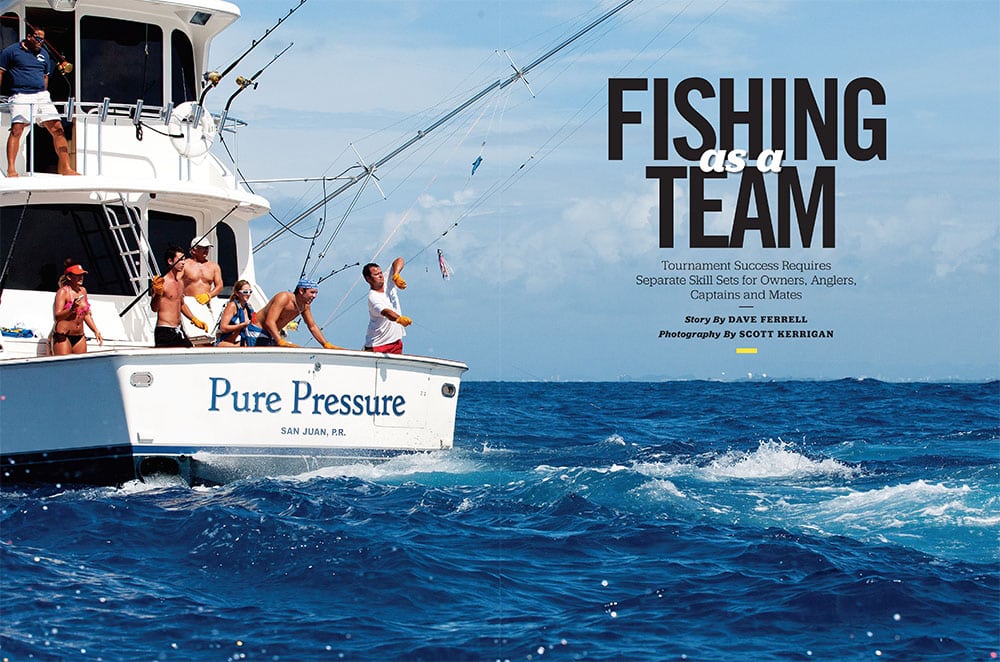
Opener
A lot of anglers like to fish in tournaments, but few ever win one. And that seems to be OK for most participants. Many tournament fishermen look at tournament fishing as if they are entering a lottery — if they get lucky, they just might have a chance to win it, and as a bonus, they get to have a whole lot of fun attending tournament parties and hanging out with all the fellows on the dock.
A lot of “big-fish-on-the-dock” tournaments do have a huge amount of luck involved. In tournaments where the most fish caught and released win the event, you take a bit more of the luck out of the winning equation. The captain that can put the team into the most meat; the anglers that hook all the fish they see; and a crew that can rig great baits, get them out fast and release fish the fastest will rule the day. In short, it takes a good team to be successful in any tournament, and each player has several specific jobs they must perform to perfection to beat the other guys.
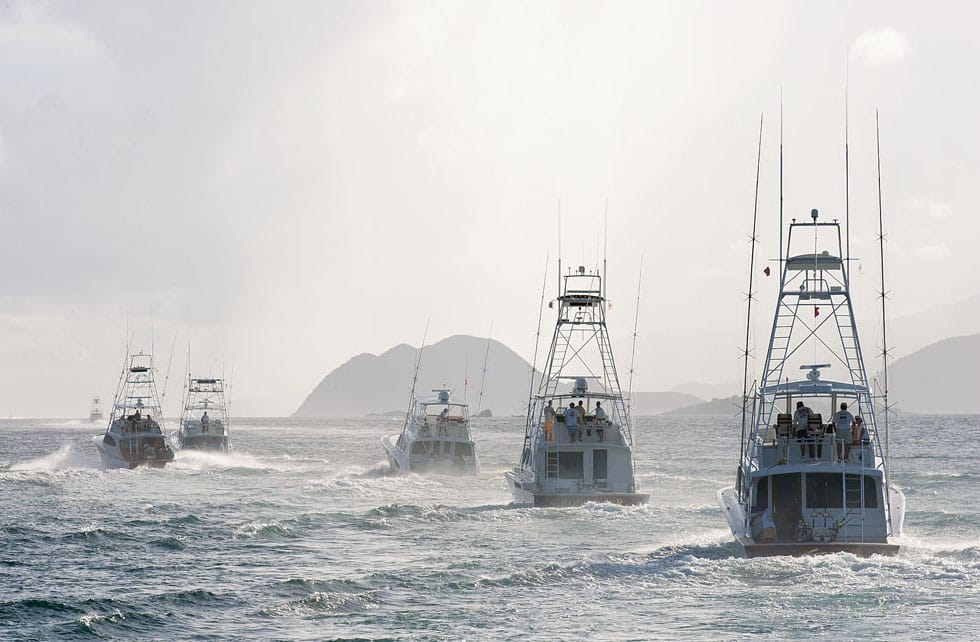
Owner
While some crews think that an owner should just pay the bills and let the rest of the crew worry about the cockpit and strategy, those teams rarely make the podium. A good team needs a good leader, and while the captain bears some responsibility in the direction the team goes, the owner is the one that ultimately puts the team together and sets it up for success.
Donnie Seay, past tournament angler and owner of the 66 Spencer Seay Goddess, spent eight successful years on the tournament trail, fishing such prestigious events as the Poco Bueno Fishing Tournament, Los Sueños Series, Bisbee’s Black & Blue Tournaments, and others. Seay put together a successful team with a singular purpose in mind. “Obviously, if you are going to get into these tournaments, your main purpose is to win,” Seay says. “However, to do that, you need to have as good a crew as you can possibly get. The angler just winds in the line. The other fellows do most of the real work.”
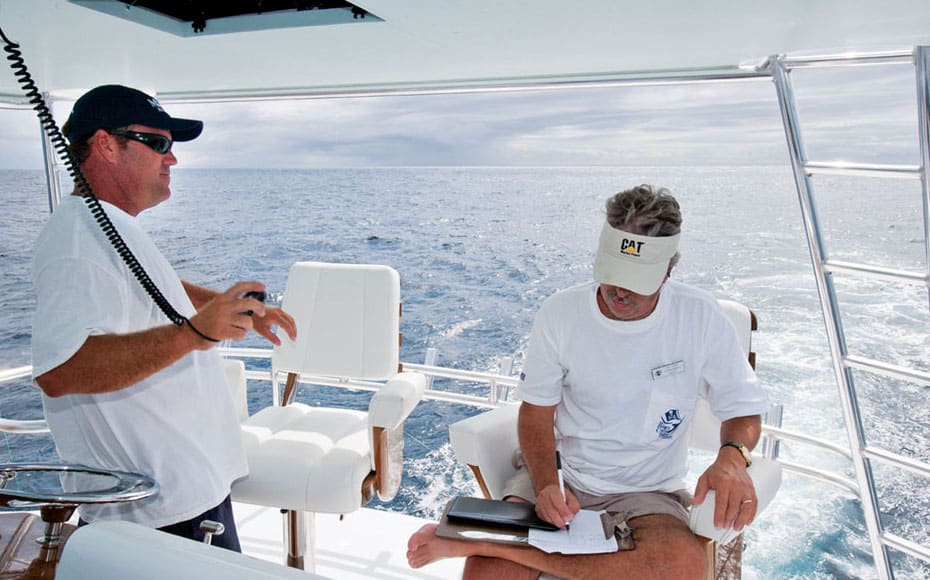
Seay started his team by hiring the late Johnny Uhr as his captain. “Johnny had been running the Chupacabra for a little while and had some great success,” Seay says. “He had access to a large number of truly exceptional friends and crewmen, like Bo Jenyns, Clay Hensley and Oski Rice, that wanted to fish in tournaments. He just knew a lot of good people, and that’s very important when you start putting together a team. We hired a lot of the guys he suggested, and we paid them a good wage and all of their expenses so that they would want to come and fish with us. To get the truly good crews, you also have to give them a good share of the purse when you win.”
Another important aspect of the captain-owner relationship is trust. “Your boat costs a lot of money, so you need to hire people with the experience and know-how it takes to run and maintain it,” Seay says. “Once you’ve hired the right crew, bought the right boat and acquired good-quality tackle, there’s only one thing left for the owner to worry about, and that’s getting the right fish to cooperate. There’s absolutely no feeling in the world like backing up to the scale when you have a big one in the cockpit — nothing like it — it makes it all worthwhile.”
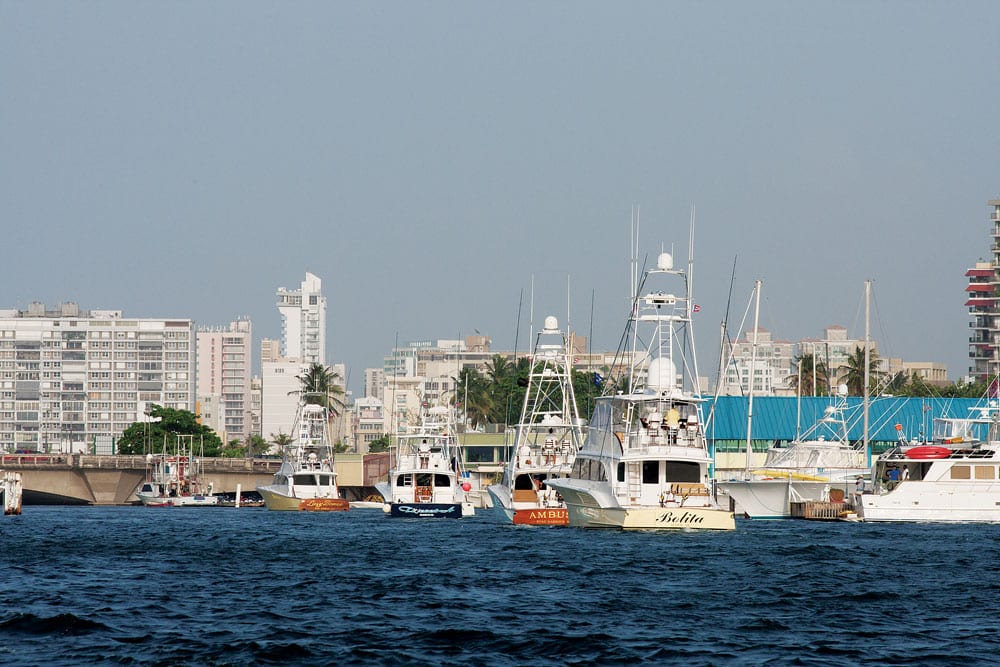
Captain
The captain plays the part of cruise director, travel agent, human resources manager and engineer all in one. All of those duties are amplified come tournament time.
Capt. Peter Gudaitus is the owner-operator of the Viking Blood Money and fishes the grueling mid-Atlantic tournament season where 80-mile runs are the norm. “When we are getting ready, a number of concerns jump to mind, and it’s really a toss-up between making sure that the boat is in the best operational condition versus what is the best location to start fishing.
“Unfortunately, accidents and other problems do creep up, and it is usually at the most inopportune times,” Gudaitus says. “We do everything we can to make sure that during the months leading up to the August tournaments, all of our kinks are worked out. There is nothing worse than having a major boat issue hit you when you need to concentrate on rigging baits, dredges and trying to figure out where to fish.”
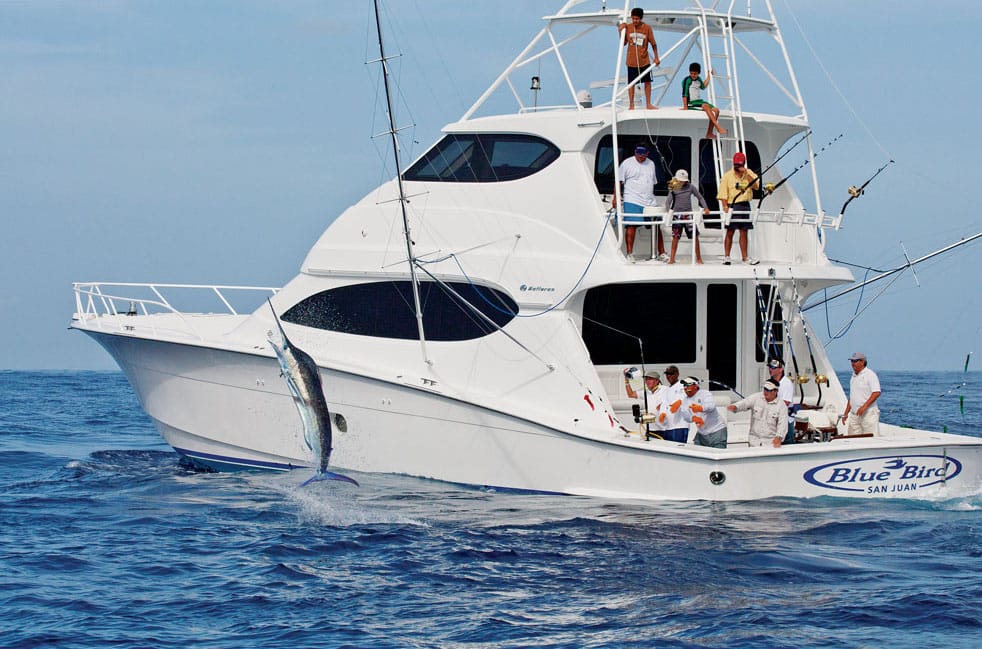
“Any captain will tell you that it is very important to have a network of friends working together and sharing information, but being an owner-operator, especially during tournament season, is especially difficult because if you choose the wrong spot to fish, you only have yourself to blame.”
In addition to keeping his ear on the dock chatter and the radio, a good captain also listens to any information he gets from his crew. The boys talk on the dock, and a friendly, well-respected and well-liked mate is worth his weight in gold when it comes to getting info on fishing styles or tips that are working in the area.
And, of course, the one thing that makes the most difference for any team is practice. “We try our best to eliminate as many variables as possible,” Gudaitus says. “We consistently fish with the same team members. We make sure that our gear is in top working order, including all of our dredge systems. We use the best bait we can get. That’s about all you can really do. If it were possible to eliminate any potential boat issues and always pick the correct spot to fish, I would sleep a lot better during tournament season.”
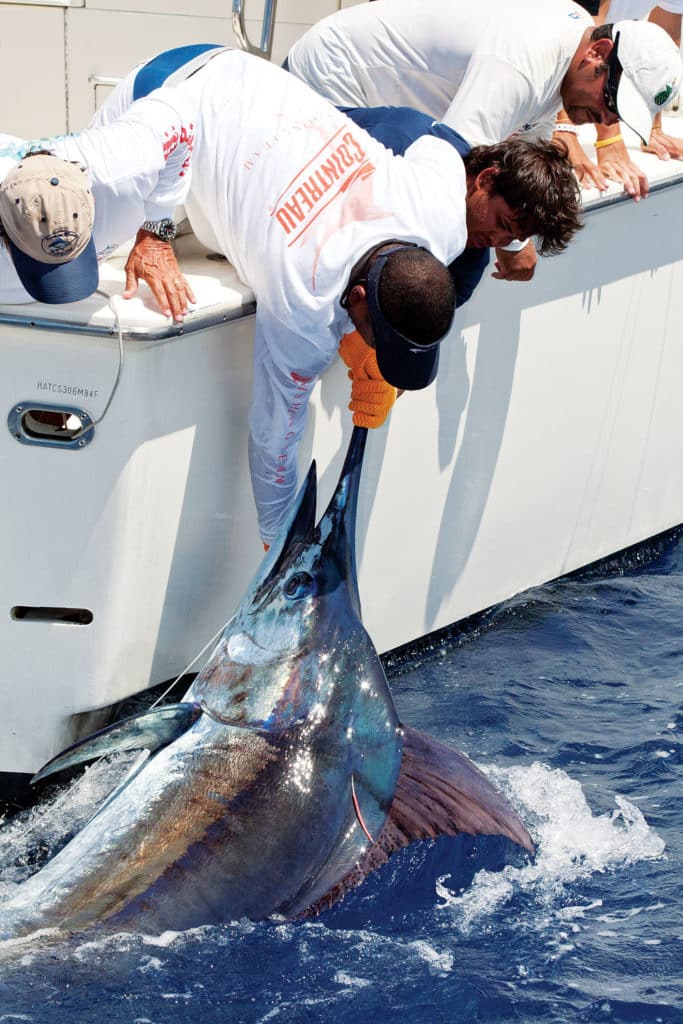
Mate
Capt. Bo Jenyns started out fishing with his father, Ron, fishing heavy tackle for giant black marlin on the Great Barrier Reef in Australia. Over the years, he gained a reputation as one of the best heavy-tackle wire men in the world, right up there with the likes of Capt. Charles Perry. He’s also known as one of the most personable mates on the circuit, and you’d be hard-pressed to find someone with a bad word to say about Jenyns, which, coincidently, is a trait that’s held by every exceptional crewman. If you can’t get along with people, then it makes for long, tense days on the water and usually a short stint on the boat in general.
“In a tournament as crew, your main job is looking after the cockpit and keeping the tackle tight; that’s the No. 1 thing,” Jenyns says. The hardest part can be dealing with the many different personalities down on the deck. The captain helps out by trying to choose the right team, but once the captain climbs upstairs, it’s up to the mate to keep everyone happy and know what to do when the fish eats.
“You have to be able to communicate what you are trying to do,” Jenyns says. “You should always talk through all the different scenarios before they actually happen so that the final outcome turns out in your favor.
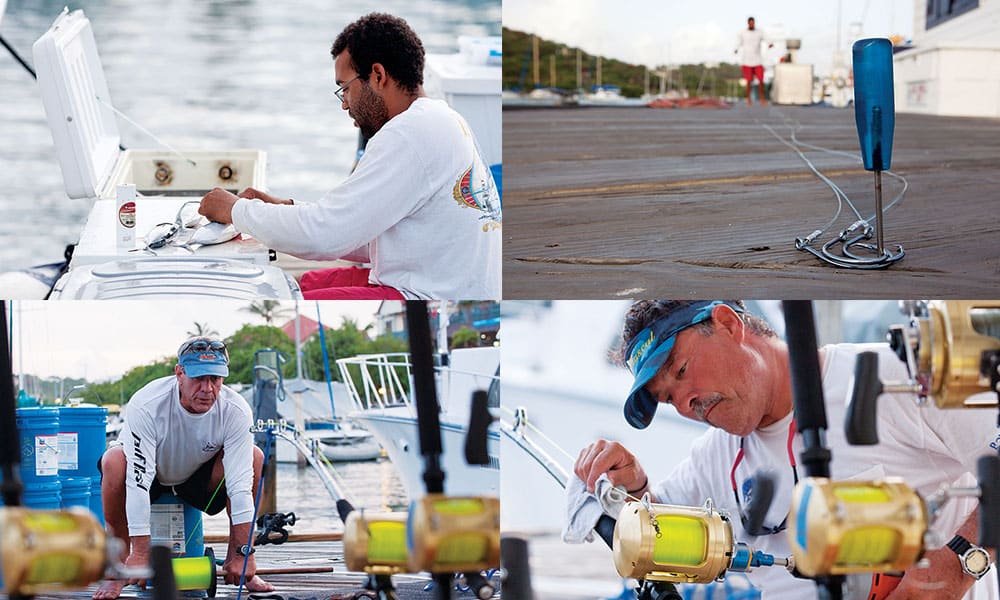
Jenyns also says things usually work out for the best when the owner trusts the captain and mates to do their jobs. “If you are in a tournament and the owner doesn’t trust you and let you take care of everything, then you’re probably better off not being on that boat,” Jenyns says. “Don’t get me wrong, the owner is paying all the bills and should get what he wants, but he hired you for a reason, so he or she should respect that and let you do your job. I really don’t mind some input, but the really good owners trust their crew. If they want to change out a lure to one they caught a nice one on before, that’s fine, but if the owner starts arguing with the crew about where we should start fishing, then it can cause problems for everyone. The bottom line is that we need them to supply the boat, tackle, entry fees and everything else, and they need us to put them on them and catch the fish — we couldn’t do it without each other. Sometimes you find yourself walking a very thin line.”
“I think a really good crew deserves a little bit of the winnings, but you need to have everything clear and sorted out before you go,” he says. “If you don’t know the owner, you need to make sure you get something in writing. I’ve been screwed out of money before. With that said, you also have to be fair about what you ask for; don’t be ridiculous. You still have to be humble. The owner shells out a lot of money for the tournament. The last thing he wants to hear is some guy asking for $400 a day to fish the event.”
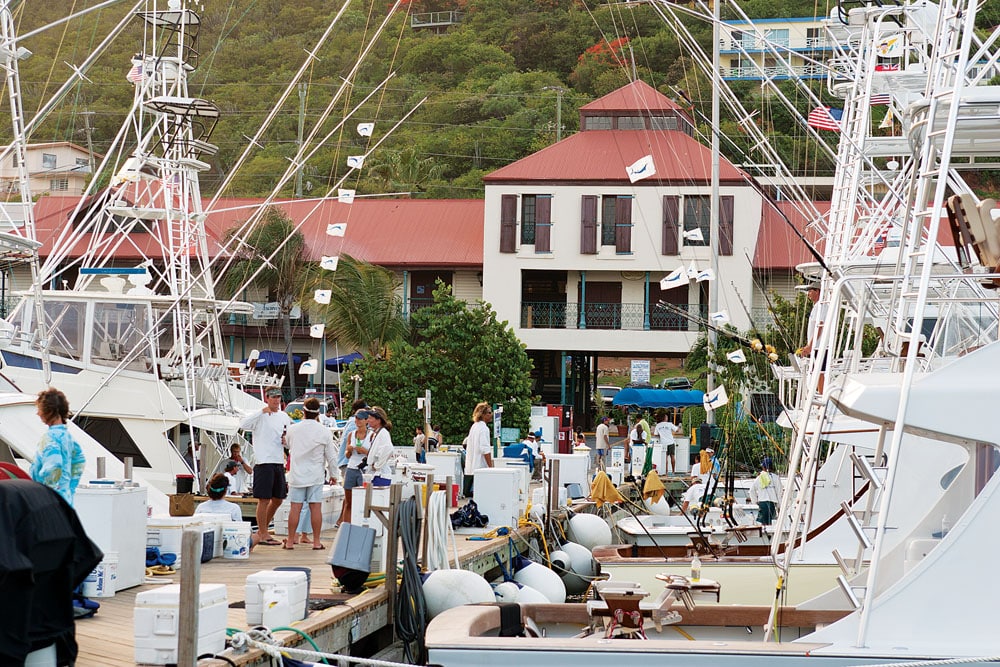
Angler
If you drop it too soon, you run the risk of tangling the leader in the fish’s bill, resulting in a nose job and missed fish. If you hang on too long, the fish won’t swallow the bait, and you end up reeling in just the head of your ballyhoo — the dreaded sancocho! Feeding and hooking fish out of the riggers is even harder, with the angler feeling for the pickup with his thumb. Once you feel that telltale tap-tap, it’s time to let her eat in free-spool while still applying the tiniest bit of pressure to keep the reel from back lashing as the fish accelerates away. After the prescribed drop-back time of three to five seconds -— a lot of boats are different — you engage the reel and hope he starts jumping. A serious angler is well-practiced and attentive in the cockpit; you can’t spend all day lounging in the salon and expect to run out and automatically hook a bunch. Good anglers also don’t chastise or harass the mates when something goes wrong. Getting pissed off and yelling at the crew casts a pall over the entire vessel, and if there’s one thing I’ve learned over the years, it’s that a happy boat catches more fish.



